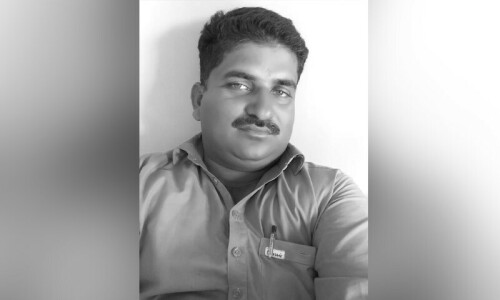KARACHI, Sept 25: The Sindh Institute of Urology and Transplantation announced on Thursday the opening of its second research unit, the Centre for Human Genetics and Molecular Medicine.
A noted Pakistani scientist, Dr Syed Qasim Mehdi, expert in the field of medical genetics development, is heading the CHGMM established at the SIUT for conducting research on association of diseases that could be predicted on the basis of genetic make-up like adult polycystic kidney disease, says a press release.
The centre will also ensure research leading to the prediction of treatment modalities for chronic diseases and cancers.
Dr Mehdi, who has plans to extend research on human genetics, especially pertaining to kidney and liver diseases, is leading a group of scientists, including three PhDs and three PhD students, at CHGMM.
Another important project under the umbrella of the newly set up centre is the analysis and tabulation of the gene frequencies of transplantation antigens of representatives of Pakistani ethnic groups. This is of vital importance to physicians and surgeons for organ transplantation in Pakistan, the SIUT release adds.
Earlier in October 2004, the SIUT had launched the Centre of Biomedical Ethics and Culture, which among other activities also produces ethical researchers and healthcare professionals and is enhancing bioethical education and researches relevant to Pakistan and the region under its postgraduate one-year diploma programme.
Having the experience of over 35 years of teaching molecular biology and medicine, a graduate of Lucknow University, India, with a master’s in molecular biology from the Massachusetts Institute of Technology, US, Dr Mehdi at the new centre also intends to evaluate the role of genetic variation in a number of genes in susceptibility and resistance to tuberculosis and hepatitis in Pakistan.














































Dear visitor, the comments section is undergoing an overhaul and will return soon.